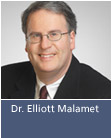 |
 The American novelist Philip Roth once portrayed Jews as "people who are not what anti-Semites say they are." This playful definition captures something true about the current state of Jewish self-perception. Many of us, in loud aggressive tones, can tell you what we are not. But to say, "well I'm not like those Orthodox Jews, who are rude and intolerant and out of step with modernity" does not impart what kind of positive Jewish construction one has made in one's own life. And the reverse is equally true: to say "I'm not like those Reform Jews who dilute and destroy Judaism," again fails to articulate a coherent and relevant message about why Judaism is important for Jews of all ages at all times. So instead of character, we have caricature.
Part of the problem that many Jewish educators have run across is that people often associate classic Jewish ideas with the ideology of a specific denomination, as opposed to the Torah itself. One striking example of this confusion came home to me a few years ago at an introductory meeting for people who wanted to volunteer to spend time with AIDS patients. This meritorious project was organized by and held at Holy Blossom, a local Reform synagogue. After a few opening remarks, which drew upon Biblical verses extolling the virtues of compassion, the rabbi conducting the meeting then launched into a diatribe proclaiming that "Orthodox Judaism brands homosexuality as an abomination." I raised my hand and politely informed the speaker that, in fact, it was the Torah itself--the same Torah that had been quoted a few moments earlier to confirm that compassion towards others was a Jewish imperative--that labelled gay sex as an abomination, in Leviticus 18:22. What Orthodox Jews think or do not think of this matter is entirely beside the point from a Biblical perspective. The rabbi clearly did not wish to deal with the ramifications of the Torah's heartbreaking complexities, the combination of its seemingly liberal virtue of caring for the downtrodden and yet its ancient code of sexual conformity. And so my point was simply ignored or, rather, used as a catalyst to repeat the disgust that the speaker felt for Orthodox Jews and their "intolerance of gays."
This is, of course, not a one sided story. Having met enough Orthodox Jews who will derisively refer to those who do not meet their halakhic specifications as "goyim," I am more than convinced of the mutual contempt that exists. Our Jewish plague is that we are very busy checking out what we think other groups are doing wrong. Would it not be more beneficial to start working on how to address our children's needs and construct programs that will show off the power of Judaism in its best light? And that means asking the question: What do I really know and understand about Judaism? And if, upon honest examination, our answers seem less than fully informed, then a reevaluation is in order.
In Through the Looking Glass , the King asks Alice to look down the road and relate what she can see. "I see nobody on the road," Alice admits, to which the king ruefully replies, "To be able to see Nobody! And at that distance too?" In the Lewis Carroll world of contemporary Judaism, we cannot afford to construct our identities on the perceived void in someone else's Jewishness. We must stare into the abyss of our own spiritual shortcomings and ever strive for the truth of Judaism. Our children deserve no less.
|
 |








